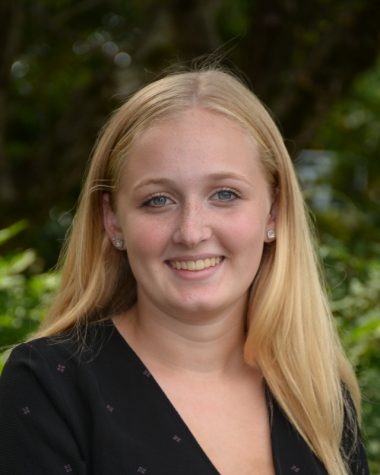Visa Crackdown Targets International Students
A student’s visa is revoked, representing the increased scrutiny that international students face. Cartoon illustration by Jennifer Ngo ’22.
September 20, 2019
With the trade war escalating between the United States and China, international students seeking visas are facing increasing delays and denials—including at least three accepted students here, according to the administration.
In 2018, over 350,000 Chinese students and scholars visited the country, according to an April NPR article, citing data from U.S. Embassy spokesperson Scott C. Walker.
“We welcome scholars to the United States to conduct legitimate academic activities,” Walker said, also noting, without elaboration, that the intelligence community has “identified an increasing number of instances in which foreign intelligence services co-opt academics, researchers, and others to conduct activities on behalf of foreign governments during the individual’s stay in the United States.”
In April, Inside Higher Ed published quarterly data on student visa holders from the U.S. Immigration and Customs Enforcement, showing that the “total number of international students studying in the U.S. at all levels declined by 2.7 percent from March 2018 to this March.”
The New York Times recently reported that this fall, “processing fees for student and scholar visas have risen sharply.”
Here, approximately 14 percent of students are international, which includes a large number of Chinese students.
We believe that bringing people together with different backgrounds enhances the educational experience of everyone in our community. — Upper School Head Joshua Neudel
The Gator granted anonymity to an international student in the Upper School, who, here legally on a visa, said, “I am not a threat. I am here to learn, and I can’t see how my studies would cause issues.”
In a 2018 article, National Association of Independent Schools President Donna Orem, citing information from the federal Student and Exchange Visitor Program (SEVP), said, “International students bring great diversity to the student population and contribute nearly $40 billion to the U.S. economy.”
Orem also said that independent schools have similar concerns as colleges and universities—not only with regard to visa issues, but with the political climate here also contributing to decreased interest in studying abroad in the United States.
“According to a special report from SEVP on international students on F-1 visas attending private schools, NAIS member schools enrolled 31,122 students from countries around the globe in 2015, expanding from 13,881 in 2005,” Orem said, also noting that NAIS is trying to obtain the most recent data from SEVP.
In another 2017-18 NAIS study that included 407 day and boarding schools, 65 percent reported that “growing or maintaining enrollment is an important factor when considering enrolling international students.
EAB/Royall & Company, a best practices firm that examines trends and challenges in education, conducted another study among international college students, which found “interest in coming to the US decreased for one-third of 2,104 prospective international students surveyed in February 2017.”
The reasons for this decline are multifaceted, with visas and travel concerns being just two components, not including cost, safety, and fears of prejudice, as reported in a 2018 article in The Christian Science Monitor.
Empowering students to lead in a global community is a core tenet to a Brimmer education, according to Upper School Head Joshua Neudel, who says that the School actively recruits students from outside of the United States.
“We believe that bringing people together with different backgrounds enhances the educational experience of everyone in our community,” Neudel said. “So, it is disappointing for the individuals that are being denied an opportunity to engage in an education in the United States, as well as for communities like Brimmer’s that are missing voices that we anticipated being at our School.”























































